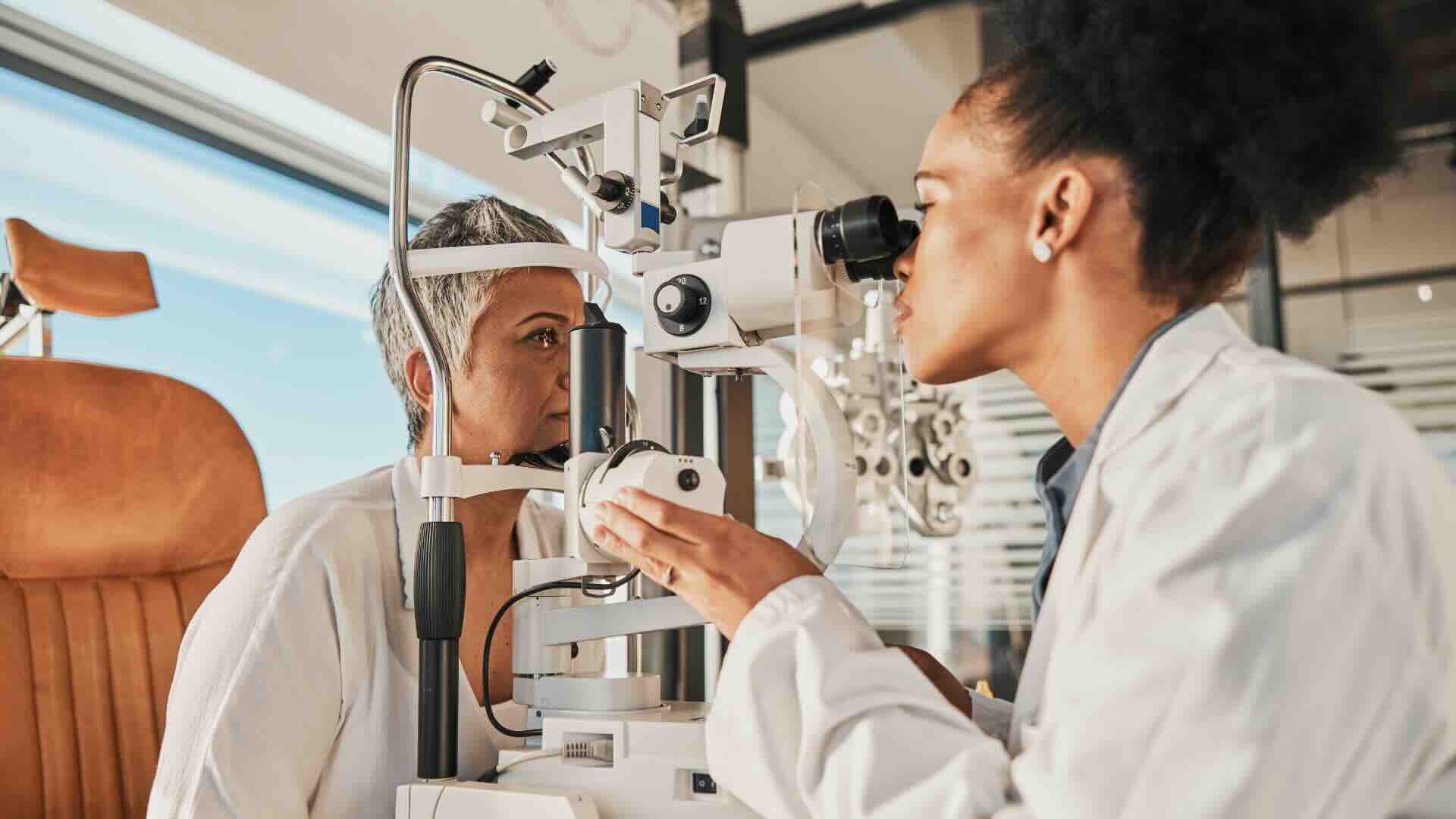Diabetes can significantly impact eye health in several ways, so getting an eye exam each year is an essential part of diabetes management. Here’s a detailed look at why these exams matter and what they entail…
How Diabetes Can Affect Eye Health
Having diabetes can increase your risk for several eye-related conditions:
- Diabetic Retinopathy:
- What It Is: Diabetic retinopathy is a condition where high blood sugar levels cause damage to the blood vessels in the retina. Over time, these vessels can leak fluid or bleed, leading to vision problems.
- Early Detection: This condition often has no symptoms in its early stages. Regular exams can detect changes before they affect vision, allowing for timely treatment to prevent progression.
- Macular Edema:
- What It Is: This occurs when fluid builds up in the macula, the part of the retina responsible for sharp, central vision. It can cause blurred or distorted vision.
- Early Detection: Eye exams can identify macular edema before it leads to severe vision loss.
- Cataracts:
- What It Is: Diabetes can increase the risk of cataracts, which is a clouding of the eye’s lens. This condition can cause blurry vision and glare.
- Early Detection: Cataracts can be monitored and managed effectively if detected early.
- Glaucoma:
- What It Is: Glaucoma is a group of eye diseases that damage the optic nerve, often associated with increased pressure inside the eye. People with diabetes are at higher risk for glaucoma.
- Early Detection: Regular exams can help detect glaucoma early, even before symptoms appear.
Here’s the good news: getting an annual dilated eye exam significantly reduces your risk of serious eye problems because it can catch issues early (sometimes even before symptoms show up) and prevent them from progressing.
Why a Dilated Eye Exam?
The type of eye exam recommended is a comprehensive dilated eye exam. During this exam, the eye doctor uses special drops to widen the pupils, allowing a thorough examination of the retina and other internal structures of the eye. This helps in detecting early signs of diabetic retinopathy and other diabetes-related eye issues, such as macular edema or cataracts.
Annual eye exams are crucial for people with diabetes to catch and manage potential eye issues early. This proactive approach helps preserve vision and overall eye health, making regular eye care a key component of diabetes management.
The medical information on Diabetes – What To Know’s website is provided as an information resource only. The content is not in any way intended to be nor should you rely on it as a substitute for professional medical evaluation, diagnosis, advice and treatment.

